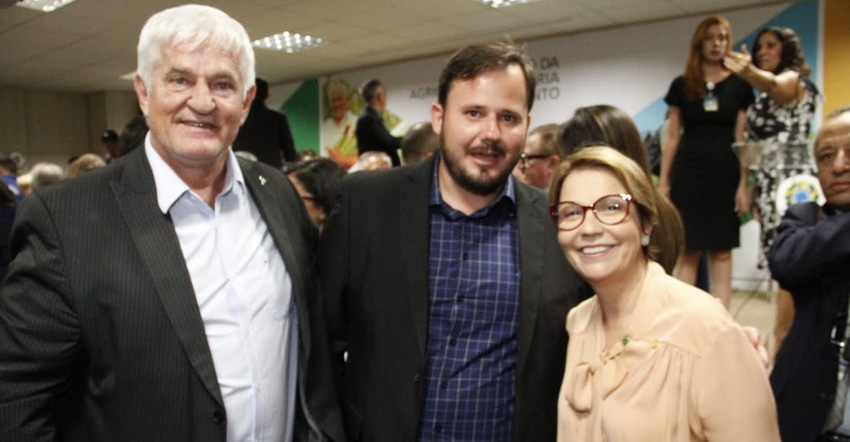
If campaign promises are to be believed, things are about to change drastically for Brazilian farmers with the inauguration of conservative President Jair Bolsonaro on January 1.
Just as the earliest of the early beans—mostly on irrigated ground—were starting to be harvested in the north-central area of Mato Grosso, Bolsonaro and his new ag minister, Teresa Cristina were sworn in.
Brazilian farmers could see a greatly streamlined bureaucracy, faster approval of inputs and greater security on their properties with the new administration—all of which could help them better compete in world markets.
New energy
As a result, there seems to be a new energy and hopefulness among many Brazilian farmers like Lucas Costa Beber, who farms about 3,000 acres of main crop beans, followed by nearly 2,500 acres of second-crop corn each season. He also serves as Administrative Director for Aprosoja, the Mato Grosso Corn and Soybean Association.
“I’m optimistic because of an end being put to ideologically-base decision-making, chiefly from the Left,” Beber told me. “Cutting red tape, an end to ideology and appreciation for the good guy who does the real work in this country, along with an end to “political correctness… Here, criminals are better off than the good guys, than farmers.”
Already at least two autonomously operating ag agencies have been brought under the aegis of the Ministry of Agriculture by presidential decree. The ministry has taken on the responsibility for small, family farms. It’s added the demarcation of native Indian reservations to its portfolio, and land reform as well—agencies whose decision-making, Beber says, has been “contaminated by Leftist ideology” in the past. This has meant, in his view, a big disadvantage for producers.
Farm security and setting boundaries for native lands
“Squatting (by the Landless Workers Movement) took place around here, and the farmer had no way of getting rid of the squatters,” says Beber. “He would have to go to the courts… and wouldn’t always be successful. Sometimes he would have to pay for it with money he didn’t have.”
And as for agriculture taking on the role of demarcating native lands, he told me, “Funai (the National Indian Foundation, which had been in charge of handling the task) was a government body full of people of Leftist ideology, who had under the table interests like money laundering, political interests as so on.”
There have been numerous clashes between native Brazilians and farmers on or near native reservations in Brazil over recent years, sometimes ending tragically.
Beber says taking the strong tint of Leftist ideology out of government agencies and ministries should mean a more rational and streamlined review of questions surrounding land reform, farm security, ag chem approvals and other matters that have moved at a sluggish pace historically.
Big changes ahead?
I’ll write more about my conversation with Beber in the next blog. For now, suffice it to say Brazilian producers are aware it’s not just miles of decrepit roadways and railways that are hold them back in the competition for international markets; it’s also the miles of red tape the new administration aims to slice through. Meanwhile, the new administration is giving hope to Brazilian producers in its promises to increase personal security on the farm and speed up ag chem approvals.
And it all comes through cutting bureaucracy. With the Ministry of Agriculture taking over new roles that had belonged to separate agencies in the past, Beber and his neighbors have started 2019 on an optimistic note.
The opinions of the author are not necessarily those of Farm Futures or Farm Progress.
About the Author(s)
You May Also Like






